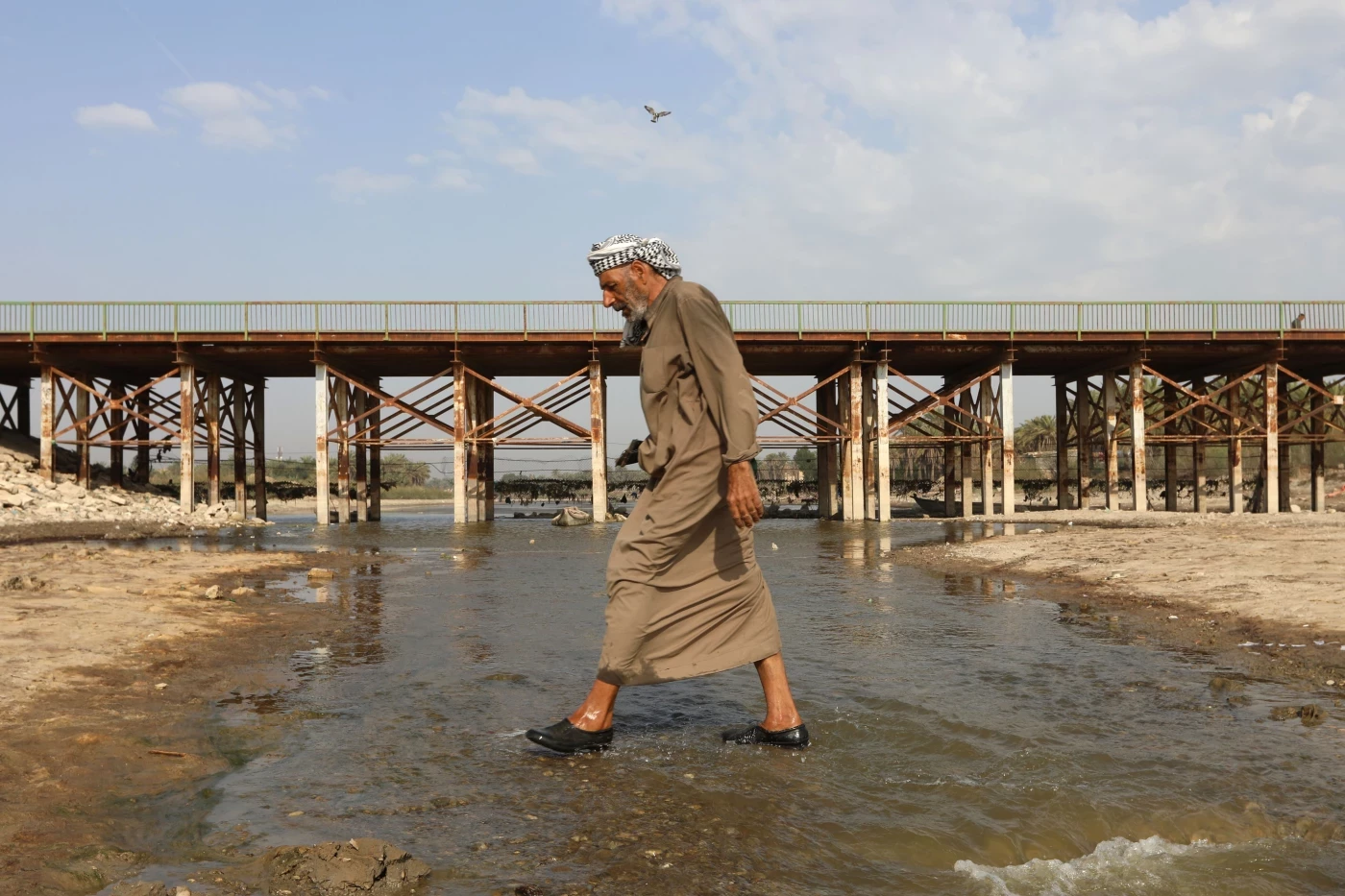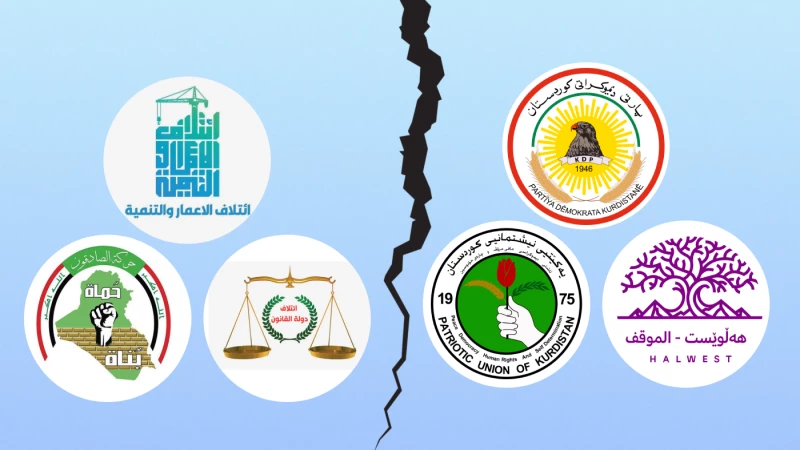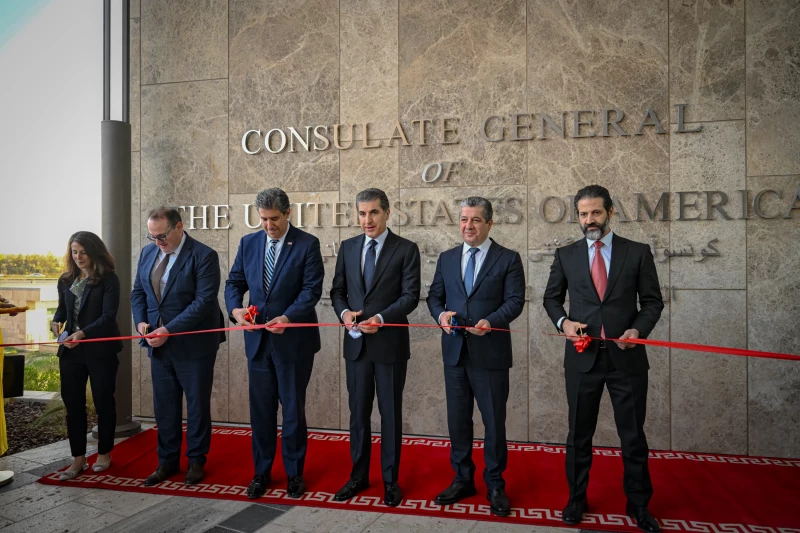A series of official warnings from local health and water directorates in Iraq's middle Euphrates provinces is indicating a deteriorating water crisis. Recent documents from water authorities in Najaf and Hilla, along with a formal letter from the Karbala Health Directorate, reveal a dwindling water level in the Euphrates that led to increased turbidity and bacterial contamination, directly threatening public health. For residents, prompting a wave of resentment through social media, displaying unclean water from their taps, and sparking the first signs of diffused local protests.
This water crisis can escalate rapidly, threatening Iraq's fragile political stability. A failure by the government to manage the situation could see these localized demonstrations develop into a widespread protest movement spanning the governorates along the Euphrates. A similar scenario unfolded in 2018, when contaminated water in the Basra distribution network led to the poisoning of over 118,000 citizens, igniting the 2018 Basra protests, a movement that ultimately derailed the political ambitions of then-Prime Minister Haider al-Abadi, ending his bid for a second term despite the historic victory his government had against ISIS. A few days separated the warnings about contaminated water in Basra from the start of massive protests, whose anger was catalyzed by the government's use of deadly force. Similar factors are still there in 2025 Iraq.
This time, the crisis directly threatens Iraq's carefully maintained “neutrality” in the escalating regional conflict between the United States and Israel against Iran and its proxies. Reduced water inflows leave the Iraqi government in a highly vulnerable position, susceptible to the demands of upstream nations Turkey and Iran. Now more than ever, both countries can leverage control over water flows to extract political concessions from Baghdad. This pressure could effectively sabotage the current government's efforts to remain neutral, potentially forcing Iraq to tolerate its territory being used as a launchpad for military operations—a development that would guarantee a significant expansion of the regional conflict.
This crisis must be understood within a broader context of systemic failure. Iraq has failed to strategically address human factors affecting its water, most importantly upstream dams, while also suffering from chronic internal mismanagement of its water resources. The near-total absence of effective water conservation, recycling, and treatment infrastructure, all exacerbated by recurrent droughts, has already created internal displacement crises.
According to UN estimates, over 168,000 Iraqis have been forced from their homes due to drought.
As the crisis deepens, it portends a future where displacement is beyond an internal affair. Inhabitants of a land historically defined by its rivers may be forced to abandon it in the future. Within a few years, Iraq could be at the center of a major migration crisis pushing citizens toward Turkey and the European Union, echoing the 2015 wave that saw over 760,000 Iraqis head west.
Europe is already grappling with a stream of refugees from the region, driven by deteriorating living conditions. While precise figures for this exodus are absent, it establishes a precedent. A chronic water crisis could compel a far larger population, this time from federal Iraq, to follow these already-established migration routes.
Ultimately, the primary responsibility for navigating the water crisis lies with Iraq itself. The government in Baghdad must fundamentally reevaluate its national priorities. While the current administration concentrates on high-visibility infrastructure projects, pouring the state's investment budget into concrete roads and bridges in the capital, a far more existential threat is gathering force—one that risks transforming Iraq into an epicenter of regional and even global instability.
Pursuing a dam-building strategy, though successful for upstream nations, is no longer a practical solution for Iraq; the country is simply too late to the game. The core challenge is no longer about water storage but about the meticulous management of an increasingly scarce resource.
Therefore, Iraq must execute investments in water recycling and conservation at the same level of national priority as its vital oil and gas sector. The paramount objective must be to conserve and optimally utilize every drop of water that enters its territory. It is now a national security imperative for Iraq to aggressively develop its wastewater treatment capacity and recycle that water back into its beleaguered river systems.
In parallel with these domestic reforms, Baghdad must leverage its economic influence to compel its upstream neighbors to negotiate. Iraq can no longer afford to separate its substantial trade relationships from its existential water security needs. With an annual trade volume approaching $20 billion with Turkey and $12 billion with Iran, Baghdad possesses leverage.
Iraq should tie continued preferential economic access, including customs exemptions, to tangible progress on achieving legally binding water agreements. While the droughts impacting both neighboring countries are a serious reality, the principle of equitable burden-sharing must be enforced.
The current paradigm, where Iraq as the downstream nation is forced to absorb most of the crisis's impact, is unsustainable.
Finally, the international community must adopt a policy of pressure. Instead of unconditional aid, it should compel the Iraqi government to prioritize comprehensive water management projects. This should be followed by clear offers for international firms to provide the necessary technology and expertise to tackle the crisis effectively.
Tolerating Iraq's endemic corruption and administrative dysfunction is no longer an option when the consequences include another mass migration wave toward Europe and the transformation of Iraq into a hub of regional instability.
A stable, water-secure Iraq is imperative for both the United States—which can offer technology and expertise—and the European Union.
Investing politically in Baghdad's capacity to manage its water is therefore not an act of charity but a direct investment in protecting European borders, fostering economic opportunities, and ensuring long-term regional de-escalation.
The views expressed in this article are those of the writer and do not necessarily represent the position of The New Region's editorial team



 Facebook
Facebook
 LinkedIn
LinkedIn
 Telegram
Telegram
 X
X


